Recent Blog Posts
Is a Construction Zone Ticket Worth Fighting?
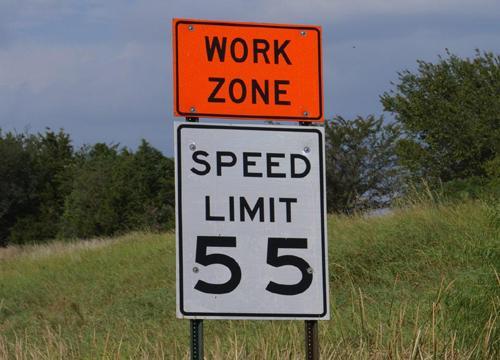 If you are in a rush, driving through a construction zone can certainly be frustrating. However, it is in your best interest to be patient and obey the slower posted speed limits through these work zones. More than 6,700 motor vehicle accidents occur in Illinois construction zones every year leading to more than 1,600 injuries, often because people are driving too fast. Choosing to speed through construction zones can lead to more than a mere construction zone ticket; you could wind up in jail and tarnish your driving record.
If you are in a rush, driving through a construction zone can certainly be frustrating. However, it is in your best interest to be patient and obey the slower posted speed limits through these work zones. More than 6,700 motor vehicle accidents occur in Illinois construction zones every year leading to more than 1,600 injuries, often because people are driving too fast. Choosing to speed through construction zones can lead to more than a mere construction zone ticket; you could wind up in jail and tarnish your driving record.
Legal Consequences for Speeding in a Construction Zone
Depending on the situation, it may be worth fighting a speeding ticket through a construction zone if you want to try to avoid serious legal ramifications. In Illinois, construction zone speeding is more serious than a regular speeding ticket because you stand to lose your driver’s license. The minimum fines if you get a ticket for speeding in a construction zone are $250 for first-time offenders and $750 for second-time offenders. If you get a second construction zone speeding violation, you could lose your driver’s license for three months.
I Got Caught Driving on a Suspended License. Now What?
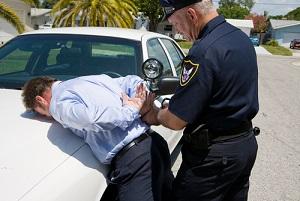 Losing your driving privileges can impact your livelihood and your peace of mind. You may need to run errands or get your kids to school and succumb to temptation by grabbing the keys to the car and driving, just this one time. But having a driver’s license is a privilege, not a right. If you are caught breaking the law by driving on a suspended driver’s license, the legal consequences are serious.
Losing your driving privileges can impact your livelihood and your peace of mind. You may need to run errands or get your kids to school and succumb to temptation by grabbing the keys to the car and driving, just this one time. But having a driver’s license is a privilege, not a right. If you are caught breaking the law by driving on a suspended driver’s license, the legal consequences are serious.
License Suspension
It is unlawful in Illinois for a person to drive or be in physical control of a vehicle if they have had their driver’s license suspended. The penalties associated with violating this statute will vary depending on why the driver’s license was suspended in the first place. A conviction could lead to having your license suspended again or revoked for the same amount of time as the original suspension. It is important that you hire a criminal defense attorney that handles these cases regularly.
Is Your Child in Trouble for Sexting?
 An ever-increasing number of preteens and teenagers in the United States are sexting. They have either sent or received nude or seminude photos in digital form. They may not think about the consequences down the line, or they may succumb to peer pressure and sext. In a recent survey of out of 350 students, 15 percent admittedly sent a sext to someone. The danger of sexting is that digital images are never really private. Anyone could accidentally share something with the click of a button. So what happens when minors sext minors? Could they also face criminal charges?
An ever-increasing number of preteens and teenagers in the United States are sexting. They have either sent or received nude or seminude photos in digital form. They may not think about the consequences down the line, or they may succumb to peer pressure and sext. In a recent survey of out of 350 students, 15 percent admittedly sent a sext to someone. The danger of sexting is that digital images are never really private. Anyone could accidentally share something with the click of a button. So what happens when minors sext minors? Could they also face criminal charges?
What Is Sexting?
Sexting means sending or requesting indecent visual depictions of a person’s genitalia, buttocks, or breasts in a digital form which may include using a phone, laptop, tablet, or computer. It is referred to as a sext message.
Minors Sexting Minors
Sexting is often prosecuted under child pornography charges across the nation. If convicted, this can lead to serious legal consequences, and it could require the convicted person to register as a sex offender. However, when it comes to minors and sexting cases, some states, including Illinois, are a bit more lenient.
The Consequences of Prescription Fraud
 Addictive medications such as opioids can make people do the unthinkable to get their hands on more. The FDA even issued an alert to veterinarians because people are consuming their pet opioid medications. Misuse of these drugs is rampant. In 2021, nearly 107,000 drug overdose deaths occurred in the United States. You may have been seeking an opioid refill with a fake prescription for a medication that you once had a legitimate prescription for after surgery. This trend has become a serious public health concern. Whatever your reasons, the next steps you take in defending your case will play a vital role in the outcome.
Addictive medications such as opioids can make people do the unthinkable to get their hands on more. The FDA even issued an alert to veterinarians because people are consuming their pet opioid medications. Misuse of these drugs is rampant. In 2021, nearly 107,000 drug overdose deaths occurred in the United States. You may have been seeking an opioid refill with a fake prescription for a medication that you once had a legitimate prescription for after surgery. This trend has become a serious public health concern. Whatever your reasons, the next steps you take in defending your case will play a vital role in the outcome.
Fake Prescriptions
Forging prescriptions can involve a physician illegally altering an existing prescription or a patient using a prescription notepad to write a prescription and then forging a doctor’s signature. Sometimes people will simply use technology to create something that looks like a valid prescription. Even though pharmacists are trained to be on the lookout for unusual handwriting, strange photocopies, and dates that do not match, fake prescriptions can and do get by the system.
The Impact of the Zero-Tolerance Law on Underage Drinking and Driving
 Young people may get on the road without measuring the consequences of their actions if they have been drinking. At The Law Office of Brian J. Mirandola, we understand that they do not mean to hurt anyone; they may simply have a momentary lapse in judgment. A mistake such as underage drinking can have serious repercussions. It is important that you seek the help of a criminal defense attorney to protect your child’s future.
Young people may get on the road without measuring the consequences of their actions if they have been drinking. At The Law Office of Brian J. Mirandola, we understand that they do not mean to hurt anyone; they may simply have a momentary lapse in judgment. A mistake such as underage drinking can have serious repercussions. It is important that you seek the help of a criminal defense attorney to protect your child’s future.
Penalties in Illinois for Minors
In Illinois, there is no tolerance under the law for anyone under 21 years old to be caught drinking and driving. The zero-tolerance law is very clear, any trace of alcohol in an underage person’s system could lead to charges for violating this statute and a possible DUI conviction.
If a person under the age of 21 is convicted of driving with a blood-alcohol content (BAC) of more than .00, the following consequences could apply:
Hosting a Christmas Party and Serving Alcohol to Teens?
 So, you are hosting a holiday party and are serving alcohol to all of your guests. After all, ‘tis the season of giving and you figure what is the harm in having your teenage guests partake in a little holiday eggnog. However, giving alcohol to minors in Illinois is against the law, even if it is happening in the privacy of your home. If you are facing charges of furnishing alcohol to minors you need an experienced criminal defense attorney.
So, you are hosting a holiday party and are serving alcohol to all of your guests. After all, ‘tis the season of giving and you figure what is the harm in having your teenage guests partake in a little holiday eggnog. However, giving alcohol to minors in Illinois is against the law, even if it is happening in the privacy of your home. If you are facing charges of furnishing alcohol to minors you need an experienced criminal defense attorney.
Furnishing Alcohol to Minors
There is zero tolerance in the state of Illinois when it comes to serving alcohol to minors. Depending on the circumstances in which alcohol was provided to a minor, you could face misdemeanor or felony charges that could lead to prison time and hefty fines. Under Illinois law, it is illegal for anyone to sell, give, or deliver alcohol to any person under the age of 21 years. This includes any parent or guardian and anyone who sells alcohol. A parent could also be convicted of this crime if they knowingly allowed the consumption of alcoholic beverages by an underage guest at a private residence or any other private property under the parent’s control.
Illinois Ranks Number Two for Holiday Break-Ins
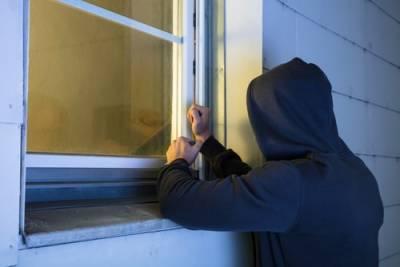 Perhaps it is the stash under the Christmas tree this holiday season that has burglars prowling around the neighborhoods, or maybe they are keeping an eye on who is headed out on vacation. Whatever the case, roughly one million burglaries take place in the United States every year, and about 83,000 occur in the month of December alone. In Illinois, the number of burglaries this month is 40 percent higher than any other month of the year, a spike which places it in a tie with Pennsylvania for number two among all states. Only New Jersey sees a greater increase in burglaries in an average December.
Perhaps it is the stash under the Christmas tree this holiday season that has burglars prowling around the neighborhoods, or maybe they are keeping an eye on who is headed out on vacation. Whatever the case, roughly one million burglaries take place in the United States every year, and about 83,000 occur in the month of December alone. In Illinois, the number of burglaries this month is 40 percent higher than any other month of the year, a spike which places it in a tie with Pennsylvania for number two among all states. Only New Jersey sees a greater increase in burglaries in an average December.
Facing criminal charges of any kind can be distressing, especially during the holidays. However, whether you broke the law or have been wrongfully charged, you should contact a skilled defense attorney.
Understanding a Burglary
A burglary takes place when a person gains unauthorized access to a home, building, car, trailer, boat, or aircraft, and their intention is to commit theft or a felony. During the holidays the items that are most often taken include the following:
Retail Theft Is Out of Control: How to Protect Yourself Against False Charges
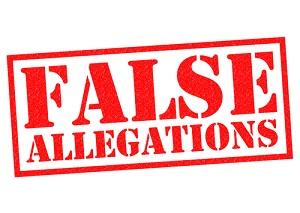 This holiday season, retailers are taking extra measures against retail theft to protect themselves from brazen daylight robberies. Some 50 percent of retailers surveyed across the country reported losses of at least $1,000 in merchandise in 2020 compared to 29 percent the previous year. Overall, organized retail crime costs retailers about $700,000 per $1 billion in sales. Retailers are utilizing technology and training employees to keep an eye on potential shoplifters. So, what do you do if you are facing retail theft charges, but the evidence does not add up?
This holiday season, retailers are taking extra measures against retail theft to protect themselves from brazen daylight robberies. Some 50 percent of retailers surveyed across the country reported losses of at least $1,000 in merchandise in 2020 compared to 29 percent the previous year. Overall, organized retail crime costs retailers about $700,000 per $1 billion in sales. Retailers are utilizing technology and training employees to keep an eye on potential shoplifters. So, what do you do if you are facing retail theft charges, but the evidence does not add up?
How Much Was Stolen?
Perhaps an overzealous security officer stops you and no theft has even occurred. But, if you are facing charges of retail theft it is no slap on the wrist. If you are accused of taking more than $300 in merchandise, you could be charged with a felony offense.
Dismissing or Dropping Retail Theft Charges
Holiday Drinking and Driving: Beware of Three Forms of DUI
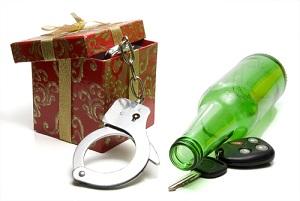 More than 12,000 people nationwide are killed in alcohol-related crashes each year, and with the holiday season upon us, drinking and driving behaviors are sure to be a problem once again. For more than three decades, police departments in Illinois have been surveyed to track the number of DUI arrests. In 2021, Aurora came in second statewide, with 325 arrests, a nearly 63 percent jump from the previous year. Decatur ranked number four in the state.
More than 12,000 people nationwide are killed in alcohol-related crashes each year, and with the holiday season upon us, drinking and driving behaviors are sure to be a problem once again. For more than three decades, police departments in Illinois have been surveyed to track the number of DUI arrests. In 2021, Aurora came in second statewide, with 325 arrests, a nearly 63 percent jump from the previous year. Decatur ranked number four in the state.
This holiday season, you can bet law enforcement will be on the lookout for drunk drivers, and past DUI convictions can affect whether you are charged with a misdemeanor offense or a felony charge. With this in mind, let’s look at three different types of DUI charges.
Misdemeanor DUI
A driver will face a class A misdemeanor charge if their blood alcohol content is .08 or more. Often, defendants who face these charges were driving recklessly. You can face up to one year in jail and fines of up to $2,500. First and second offenses for DUI are usually prosecuted as misdemeanors in Illinois.
How to Defeat an Unfair DUI Charge
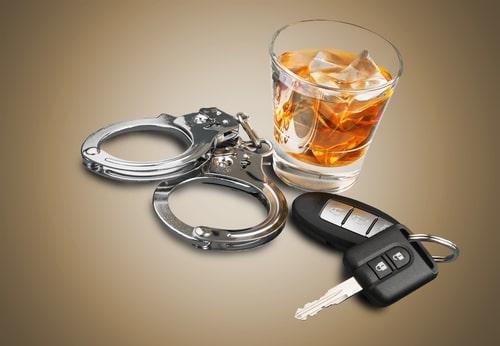 It may be hard to fathom that the average convicted drunk driver will get behind the wheel of a car 80 times before being arrested. With nearly 12,000 alcohol-related deaths, we are seeing a 14 percent increase since 2019. For that reason, the legal consequences are severe, especially for repeat offenders. At The Law Office of Brian J. Mirandola we understand that drunk driving is a problem but so is being wrongly accused of DUI. The repercussions are not fair if there are flaws in the arrest.
It may be hard to fathom that the average convicted drunk driver will get behind the wheel of a car 80 times before being arrested. With nearly 12,000 alcohol-related deaths, we are seeing a 14 percent increase since 2019. For that reason, the legal consequences are severe, especially for repeat offenders. At The Law Office of Brian J. Mirandola we understand that drunk driving is a problem but so is being wrongly accused of DUI. The repercussions are not fair if there are flaws in the arrest.
Seek Legal Help
Too many drivers do not seek legal help because they are embarrassed. But an unfair DUI conviction will have a lasting impact on your life. A key factor to remember is that it takes about an hour or more for alcohol to become fully absorbed into your body. So, if you had a drink before driving you may not be legally impaired while driving, even if a chemical test shows a BAC over the legal limit.
The first thing you should do is seek an experienced DUI attorney who will review your case and craft a strong defense.







